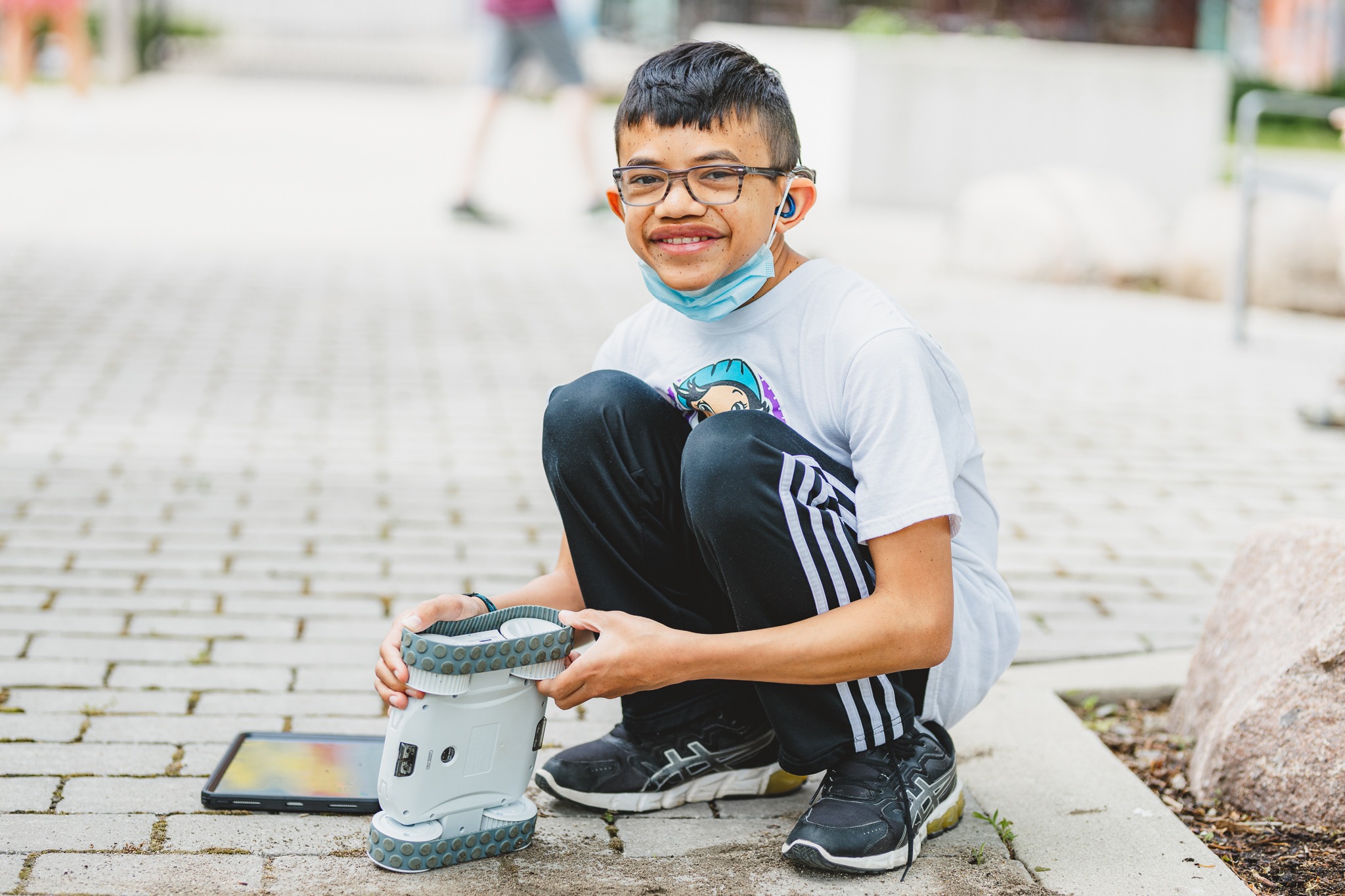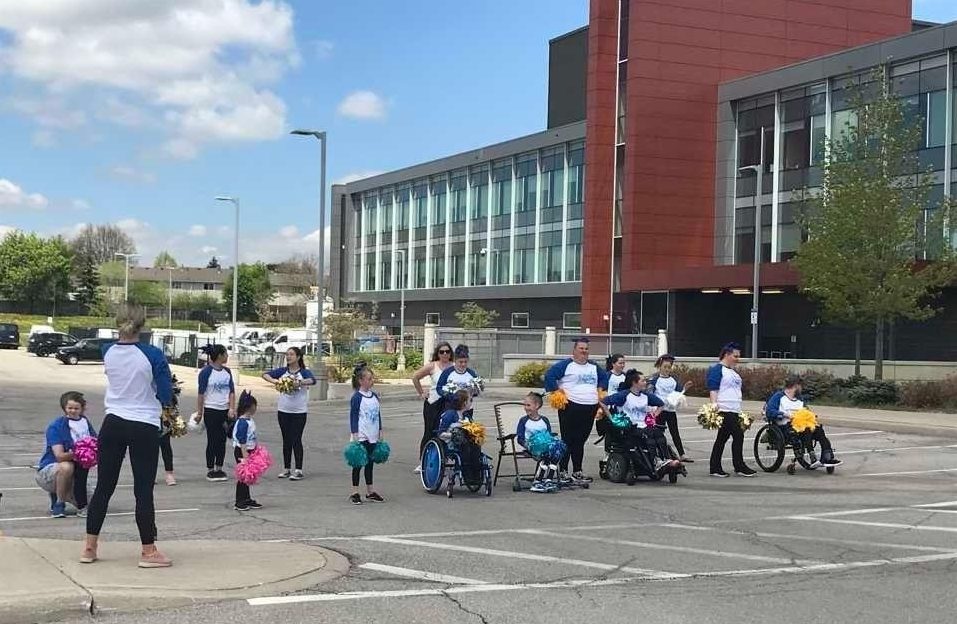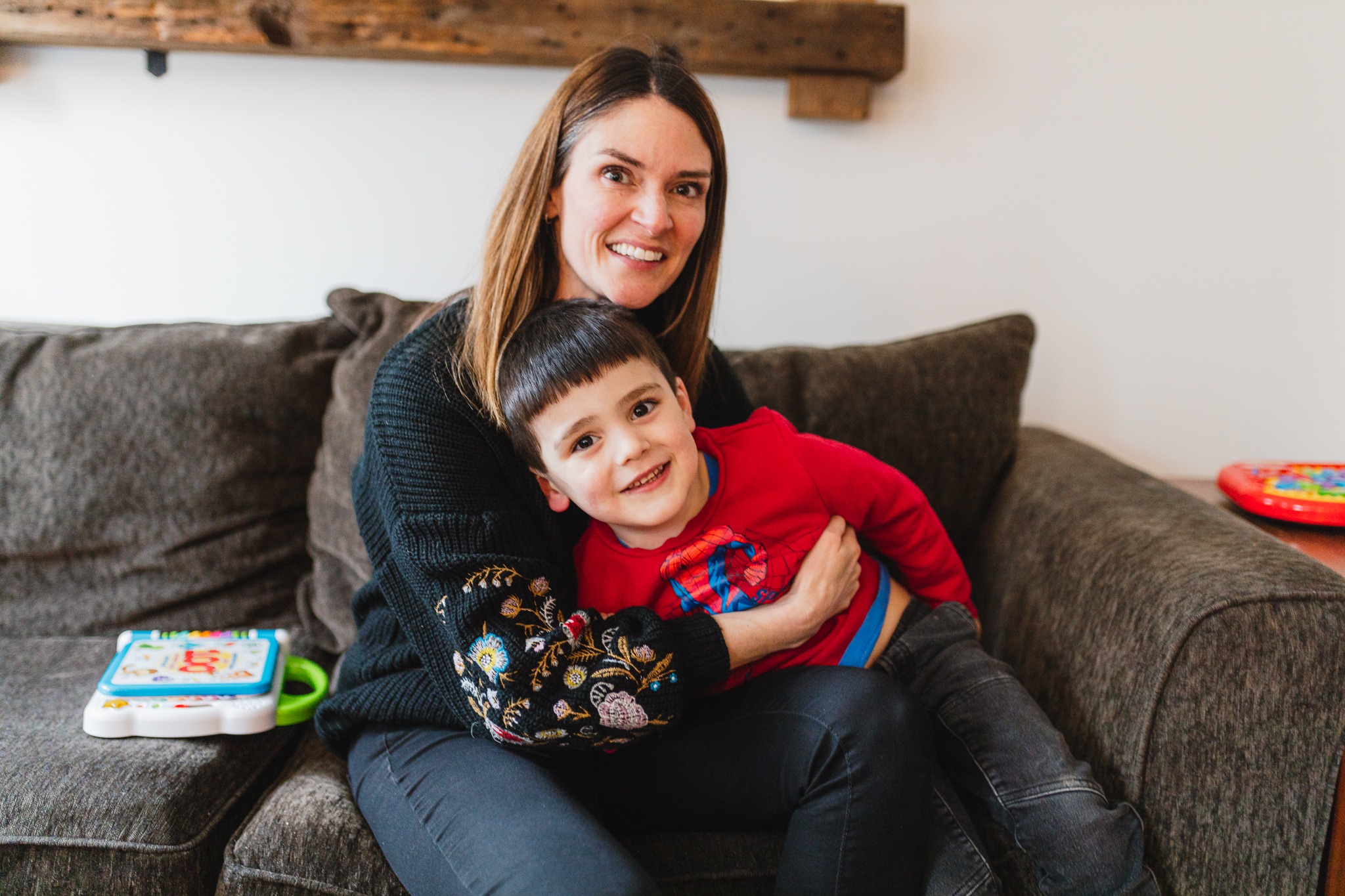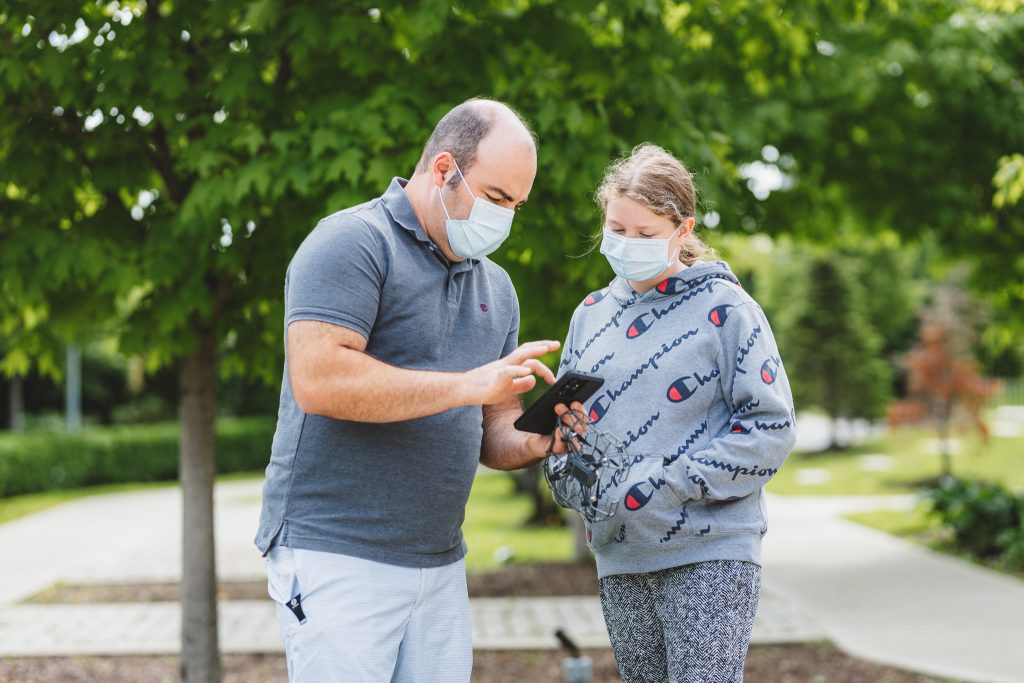
Volunteer-led robotics club for kids teaches STEM skills through fun
Mike Berube believes that all kids deserve a chance to reach their full potential.
That’s why the robotics expert volunteers to help young Hamilton Health Sciences (HHS) patients learn STEM (science, technology, engineering and math) skills through a hospital-based robotics club.
“It’s about opening up the world for these kids.” — Mike Berube, parent volunteer
Berube’s daughter Petra, 8, was born with a genetic condition where part of one of her chromosomes is missing. She is non-verbal and has challenges with her gross motor skills.
Gross motor skills use the large muscles in the body for balance, coordination and bigger movements like jumping or climbing stairs.
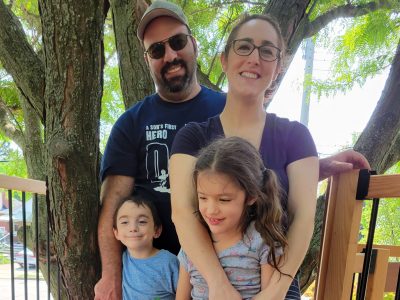
Mike Berube and Ana Tomljenovic-Berube with their children Mark and Petra. Mike volunteers to lead the robotics club at the RJCHC, and the family donates toys to the club.
Petra is an outpatient at the HHS Ron Joyce Children’s Health Centre (RJCHC), where the club is based. The RJCHC, located in north-end Hamilton, is part of HHS McMaster Children’s Hospital and home to a range of outpatient services focused on child rehabilitation and developmental health.
Berube partners with hospital therapeutic recreation staff as the club’s technical lead to provide activities like building Lego robots, operating remote control cars and drones, and playing with tech toys called Sphero robots. He also volunteers at his children’s school, helping kids learn robotics and coding. Petra and her brother Mark, 5, participate through their class.
“I have the time to volunteer, and I like getting technology into young people’s hands,” says Berube, an industrial electrician by trade with a licence in mechatronics — technology combining electronics and mechanical engineering. A workplace accident eight years ago forced him to retire early.
Learning through play
Lindsay Bray is the clinical leader of developmental pediatrics and rehabilitation at the RJCHC. “STEM-focused activities offer children and youth with special needs opportunities to build their knowledge, social skills and problem-solving skills,” says Bray.
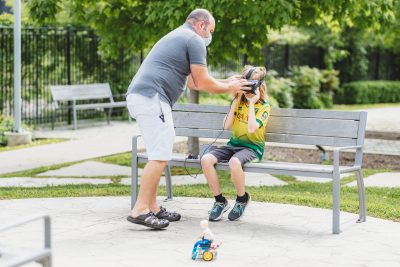
Mike Berube helps robotics club member Oliver adjust virtual reality goggles used for maneuvering a remote control car.
Back in 2019, Bray developed a proposal for a kids’ robotics club, hoping to launch it that year in partnership with Berube, who had volunteered to lead it.
“Fostering a love of STEM subjects has so many benefits…” — Lindsay Bray, HHS clinical leader
But just as they were getting the club off the ground, the global pandemic reached Hamilton and in-person activities were canceled. Berube pivoted to a virtual club format, meeting regularly with six children and youth online to teach them how to use robotic toys. Staff dropped off toys to the homes of participating kids, or parents picked them up.
Two years later, with pandemic restrictions lifting, the club is able to once again meet in person at the RJCHC. On Saturday mornings starting in May, kids got together to play with robotic toys in the building’s lobby, which has very light foot traffic on weekends. They also play outside in the courtyard. Over summer, they hope to use a blocked-off area of the parking lot for remote control cars and Sphero toys.
Kids who lack hand control can use foot pedals and head controls to manipulate toys. “This puts these kids in the driver’s seat,” says Berube. “It’s very liberating for them.”
Many benefits of robotic play
“Toy robots provide important play experiences for children with physical, developmental and social limitations,” says Bray. “Research shows that participating in a robotics program can help kids’ critical thinking, problem solving skills, spatial abilities and their ability to work as a team.”
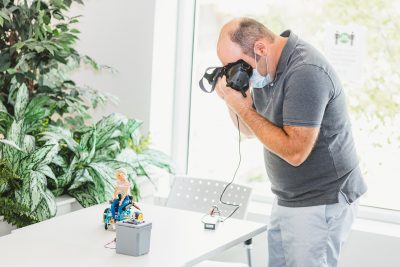
Mike Berube adapted a remote control car to function as a motorized wheelchair for a Barbie doll. This toy helps kids with limited mobility learn to maneuver their own motorized chairs. A custom wireless joystick and camera are used to simulate sitting in the chair.
It also encourages fine motor skills, play and exploration. “For example, a child learning to drive a motorized chair can practice using a remote control car,” says Bray. They can explore areas they may not normally have easy access to – like the playgrounds, parks and trails – using remote control cars or drones since these toys are equipped with a camera and can be remotely viewed using a tablet or virtual reality goggles.
“It’s about opening up the world for these kids,” says Berube, whose whole family is passionate about STEM subjects. His son Mark does coding and operates remote controlled cars and drones at home. Mom Ana Tomljenovic-Berube is an assistant professor at McMaster University in the School of Interdisciplinary Science, where she teaches in the life sciences and integrated science programs.
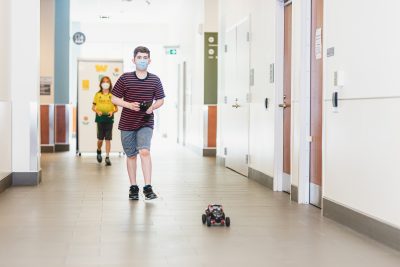
Ayden’s favourite tech toys include remote control cars.
Skills children learn through the robotics club can help even the playing field at school, and also put RJCHC patients in leadership positions with their classmates, says Bray. “When robotics are introduced in the classroom, club participants can be leaders because they’ve already mastered these skill sets.”
A shared interest in technology helps build self-confidence, teaches teamwork and opens the door to new friendships. “Kids love technology, and our patients can bond with their peers through this shared interest,” she says.
Club participation could also open doors for future careers, since they may be motivated to study STEM subjects at college or university, and pursue jobs in technology.
Expert tech lead, high-quality toys key to success
The toys are high quality and “practically indestructible,” so kids don’t need to worry about breaking them. “And even if they do happen to break, they’re easy to fix,” says Berube.
As well as leading the club, Berube has also helped young patients learn to use assistive devices.
“A boy with vision impairment was learning to use his white cane, and Mike turned this into a game through the use of a remote control car that communicated with a high-strength magnet on the cane,” says Bray. “As the boy walked around the room with his cane, buzzers would sound and flashing white lights would go off, alerting him if he was getting close to the car.”
This helped teach him, in a fun way, to keep his cane out front when walking.
“We’re thrilled to offer RJCHC patients such opportunities under Mike’s leadership, and in such a fun way,” says Bray. “Fostering a love of STEM subjects has so many benefits that can help these kids well into their adult lives. We’re so grateful to Mike, for giving his time and talent to improving the quality of life for our young RJCHC outpatients.”
The robotics club will continue meeting in person over summer, likely on a weeknight, and is ideal for patients aged nine to 15. Patients interested in joining can ask their parents to contact clinical leader Lindsay Bray at 905-521-2100, ext. 74469.

